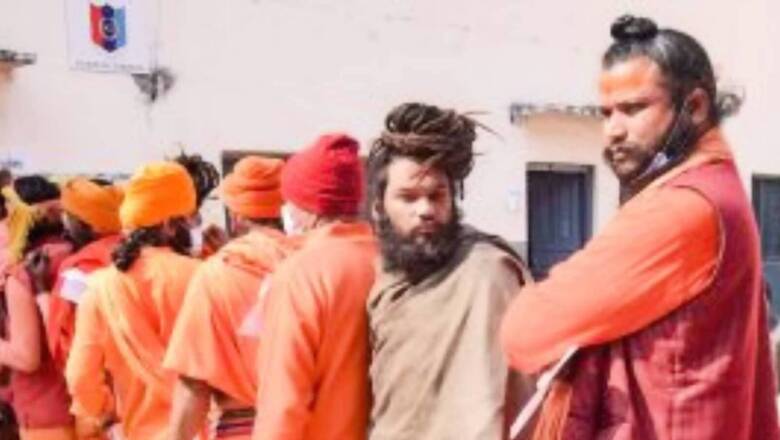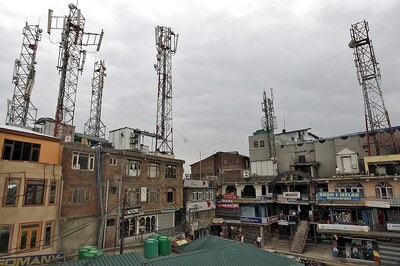
views
The Muslim clergy, representing the gargantuan chunk of one among the six notified minorities on TV debates, claim to believe in the neologism of Ganga-Jamni Tehzeeb. They uphold the dubious and distorted version of secularism, as propounded by Jawaharlal Nehru, while seeking stringent actions against any non-Muslim for dissing their religious sentiments are frequent these days.
Thus, in a way, tacitly buttressing the call of action-jihad, so to speak, against the Mushrik (polytheist).
The former Bharatiya Janata Party (BJP) spokesperson, Nupur Sharma, they wish should be instantly condemned in accordance with Taliban law, whereas the butchers of Kanhaiya Lal Teli from Udaipur should be convicted under the Indian law and years and years of court trials.
Again, this brazen display of selective love for the Constitution is glaringly visible.
Steven Ian Wilkinson of Yale University notes that the rising ethnic violence in India stems from augmented confessionalism, a specific religion-based power sharing arrangement in a democracy, and that no such arrangement can satiate the groups and will eventually lead to resentment.
We are also a witness – irrefutably — to a lot of grim and ferocious Muslim faces on national television professing and promulgating that Islam is a religion of peace — of course, barring the internecine feuds of the multitude of sects that Islam is vivisected, for Islam has an innate attribute, something analogous to the clash of clans where every clan claims its ascendancy and piousness.
Except for the fact that the clan word has to be replaced with sects — while the radical Jihadi terrorism that ails the globe is another startling reality. But the cacophony and popular discourse has been that the Hindus are fragmented and that Hinduism divides on the basis of castes: not just post-independence, but this has been the thesis for centuries as one of the prominent and much touted “egalitarian” attributes of the younger variant of the Abrahamic family. Sunnis decry praying in Shia mosques. Sunni mosques are off limits to Shias. Ahmadis are not allowed in either. But claims that Dalits can’t go into some specific Hindu temples have always been peddled and amplified at the centre of the national and international discourse. Not to highlight some alleged social malice, but to disparage, revile, and diss Hindu Dharma.
“We worry when symptoms come but refuse to notice the deeper disease. Children are being taught in madrassas that the punishment for blasphemy is beheading. It’s being taught as the law of God…What’s being taught there should be examined,” Kerala Governor AM Khan observed on the Udaipur beheading.
In an interview, the honourable governor remarked that he was not at all taken aback by the beheading of Kanhaiya Lal in Udaipur, as hatred lessons are taught to Muslim kids in madrasas. He also accentuated a few other points that are being preached in madrassas.
The first thing is wherever there is unbelief and infidels anywhere in the world, such a person has the right to be punished. Secondly, it is taught that non-Muslims are born so that Muslims can rule them. The third thing, which is not the government of their will and people, should be toppled as soon as possible. This only ratified Hamid Dalwai, a Marathi Muslim scholar who, in his 1969 book, ‘Muslim Politics in Secular India’, critiqued the appeasement politics as the furtherance of Jinnah’s separatist mindset.
According to him, the real problem was Muslim obscurantism; that Indian Muslims had shunned their doors and, in a way, evaded public scrutiny. In a way, they are secluding themselves from the rest of the country’s majority, i.e., the Hindus. He also observed that Indian Muslims are more likely to blame Hindus than to reflect. This “obscurantism medievalism” needs to be confronted instead of evading it using political chicanery and the charade of “minority protection” or “secularism”.
Secularism, as per the Cambridge Dictionary, is “the belief that religion should not be involved with the ordinary social and political activities of a country”. With the backing of the Nehruvian establishment, academics, ideologues and activists with political agendas and communist proclivities have cleverly advertised secularism and reduced it to having odious and pejorative opinions about the majority — the Hindus — and their cultures, demonstrating the hollowness of their “secular credentials” and their “solidarity” with the minority communities in India.
“We will have to devise innovative plans to ensure that minorities, particularly the Muslim minority, are empowered to share equitably the fruits of development. These must have the first claim on resources,” said former PM Manmohan Singh in his address at the 52nd meeting of the National Development Council (NDC) in 2006.
This brand of Nehruvian secularism, or minoritysm-per se-has been the sine qua non of the Indian polity where the political parties would reach, indulging in dog whistling or even rebel rousing to pander to the Muslim vote bank in lieu of state-sponsored patronage and preference over the Hindu majority.
A purported left-liberal eminent scholar, Neera Chandhoke, in her telling book, ‘Rethinking Secularism: A View from India’, notes: “Secularism, however, is in crisis, having been subjected to overuse. While a ‘thin’ and limited concept, secularism, in India, for example, has had to shoulder the onerous task of nation building, take on the construction of a uniform civil code, bear responsibility for reorganising and equalising hierarchical relationships within religious communities, and even stand for democracy. Unable to bear the weight of too many political projects, it shows signs of imploding. The west, in the meantime, seems to have given up on secularism. ”
As noted political theorist Rajeev Bhargava of the Delhi-based Center for the Study of Developing Societies (CSDS) observed the only way to emancipate secularism is a radical ‘course correction’, for it is doomed in its current form. And this would warrant ‘self-reflexivity’, and ‘self-criticism’ on the part of the secularists who, as per him, are as much responsible for the state it is in as its ‘external enemies’. Time is propitious that the Indian state extricates itself from the Nehruvian variant of secularism of seeing religious minorities as ‘separate’ from the state, which is and always was designed to underline these differences, rather than our shared heritage. The writing is on the wall for us to see if we wish to. This is the moot point that needs underscoring: where will this placating of communities, cults, or sects instead of individuality culminate?
The western concept of secularism was alien to us, but has been imported and is now deeply ingrained in the Indian polity, courtesy Nehru’s westernised outlook.
What we covet now is an indigenous model, a system that recognises the Hindu nature of Bharat.
The threat of Islamic terror and fundamentalism is looming upon us, just that we need to see, realise, and acknowledge it to call a spade a spade.
Yuvraj Pokharna is an independent journalist and columnist. The views expressed in this article are those of the author and do not represent the stand of this publication.
Read all the Latest News and Breaking News here

















Comments
0 comment